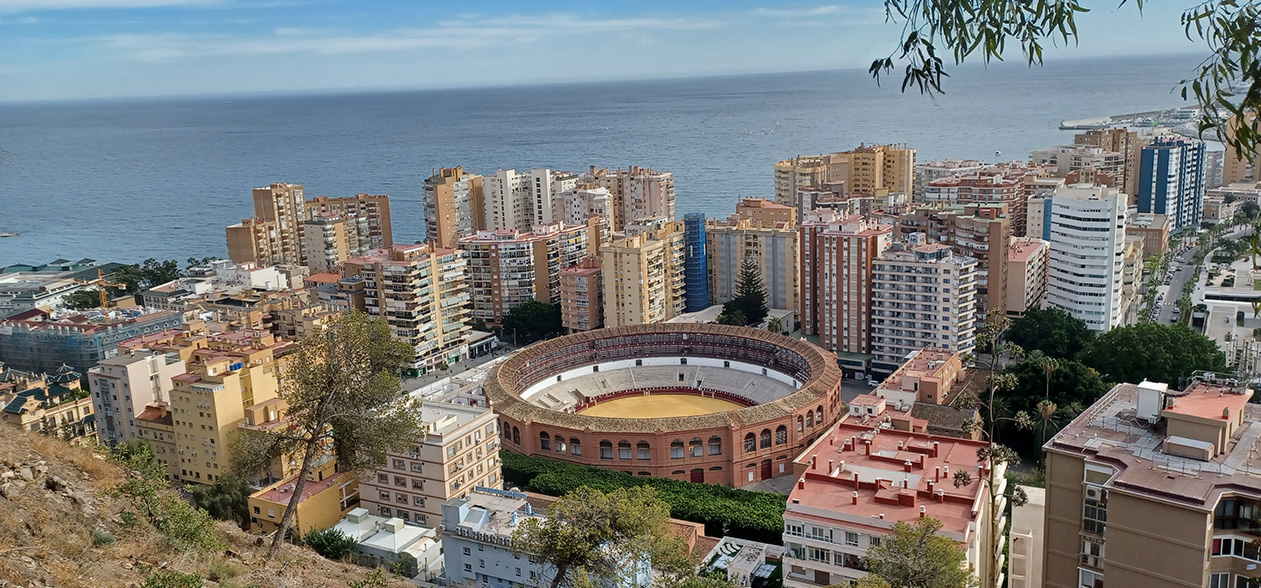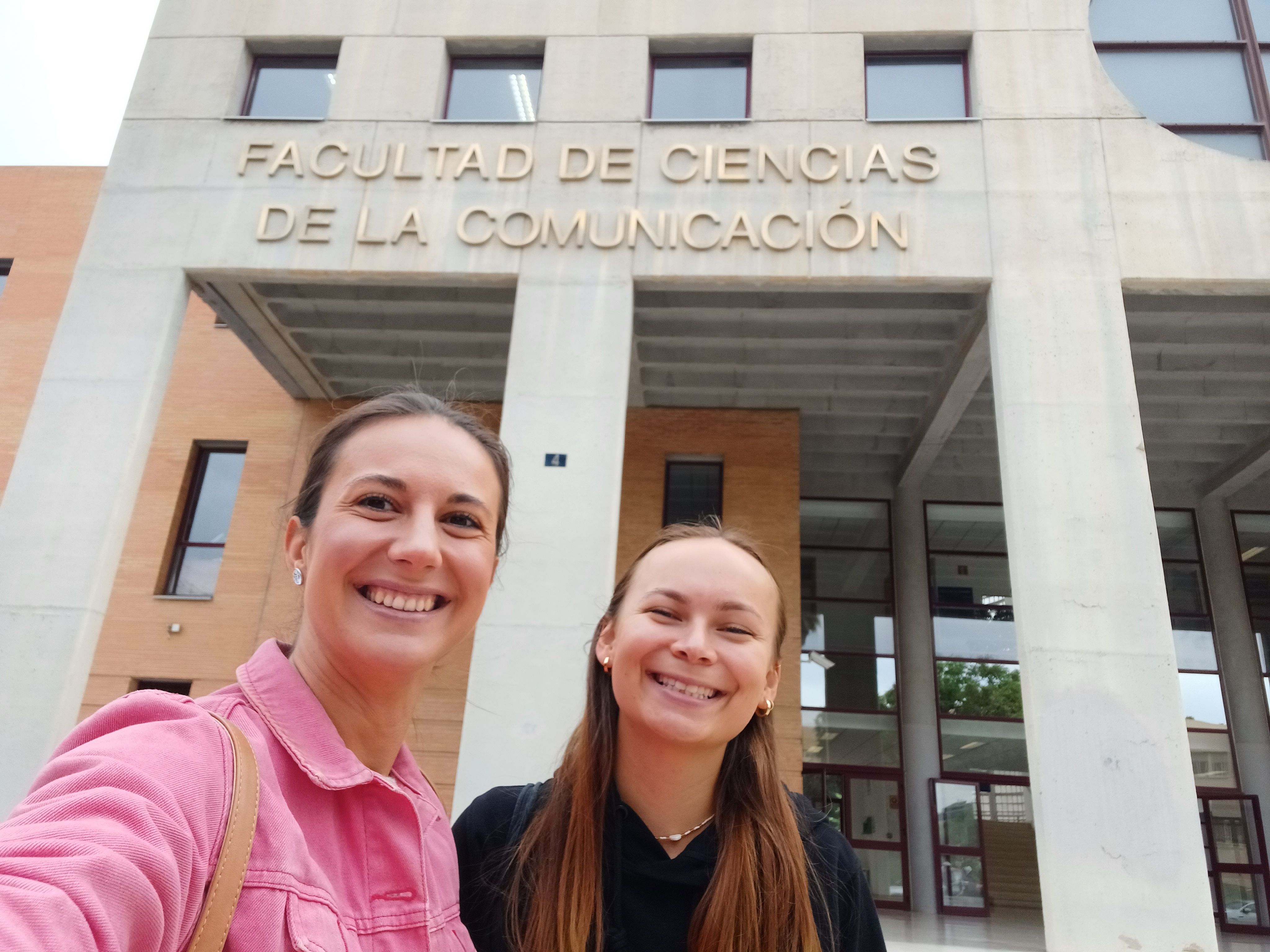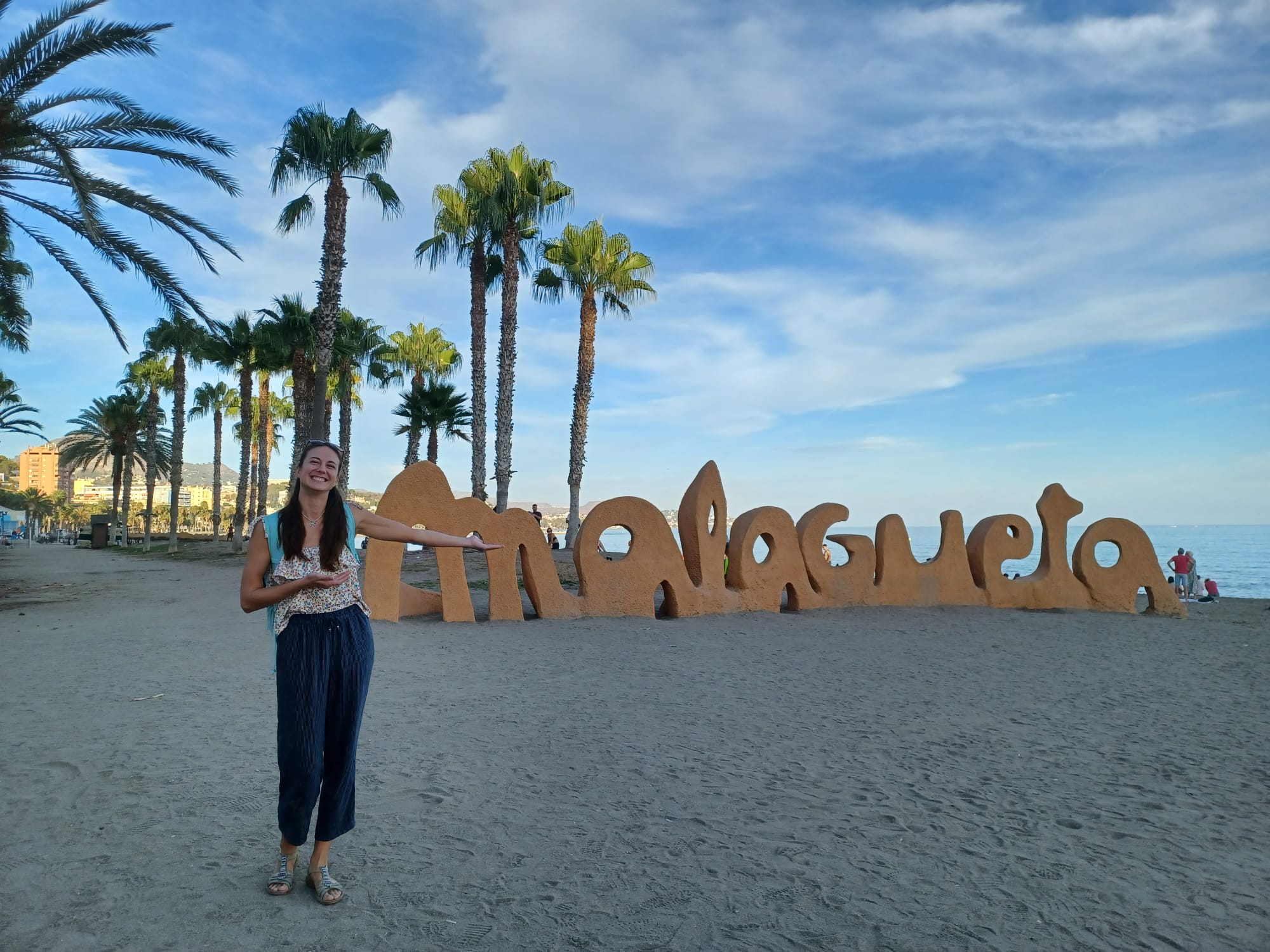
How do you study abroad? University of Málaga
Doctoral students Patrícia Nagyová and Mária Dolniaková from FMK UCM have chosen Spain as their mobility. They spent a month at the Faculty of Communication Sciences.
Spain. They spent a month at the Faculty of Communication Sciences.
Why did you decide to go on Erasmus mobility?
Patricia: Apart from having it as a compulsory part of our PhD studies, I love travelling and especially to "southern countries" like Spain. I am fascinated by their culture, mentality, way of life and I was also curious about their education system, which, as usual, also fascinated me.
Maria: Primarily because it is a compulsory part of my studies. At the same time, I have always wanted to go abroad on Erasmus and I am very grateful that I have now got this opportunity.
What has mobility given you in terms of education?
Patrícia: It has reinforced my belief that teaching can be done effectively in an interactive style, i.e. through role play, discussions, group projects, etc., and it has also enriched my knowledge of how a university/faculty provides media practice for its students.
Maria: I have been forced more than ever to be persistent and disciplined in my education. In such a beautiful country like Spain, it is very easy to slack off, dig your feet in the sand on the beach and let all the problems float away. Finding the balance between these two poles was a challenge, but I think we did it. In addition, our tutor Manuel recommended several experts who work on topics similar to our dissertations. He himself is planning to research a topic close to mine, so we keep in touch. We have even invited him to join us at the FMK.
Has mobility also helped you in your personal development?
Patricia: Stepping out of your comfort zone is always rewarding, whatever it is. It definitely tested my travel-organisation skills after a long time, and therefore independently arranging transport, accommodation, meals, planning trips, which is directly related to communication in English. During my stay in Malaga I was "forced" to brush up on my basic Spanish, as a certain (not insignificant) part of the locals are quite proud of their language and do not communicate in English. I was particularly enriched by learning more about Andalusian culture, which is extremely diverse and still "vibrant". In the past, many different nationalities and ethnicities have "mixed" there, and it is no different today. What is also fascinating is the nature, which, despite the number of tourists, is guarded by the countryside, not only to protect it from pollution, but also to preserve its original character. They are not trying to make it a 'gold mine', as is unfortunately the case with our mountains, but also with other natural areas.
Mary: I have learned to react better in unexpected situations and being abroad has also strengthened the way I solve problems. When data suddenly doesn't work in a foreign country, it's quite interesting to see how one deals with it. Asking for directions or other information from people who don't know English is also interesting. I studied Spanish extensively through Duolingo for a few months before going on mobility, and in the most critical cases it was also very helpful.

Why would you recommend this school to others?
Patricia: Definitely for the great, friendly attitude of the lecturers and fellow students, but of course also for the great practical experience this faculty offers (self-study, solid technology, internship opportunities and help...). Last but not least, certainly not least, for the city itself, which is always "alive", not only in its dozens of disco bars, but also in its breathtaking downtown with thousands of interesting streets, shops, businesses, museums, galleries, architectural gems... Malaga is one of the most attractive cities in Andalusia, but if that's not enough for you, from its centre you can get to different parts of the Costa del Sol very efficiently by train, metro or bus, as well as to beautiful places like Granada, Seville or the breathtaking Gibraltar.
Maria: It is full of kind, friendly and cheerful people.
What is your best experience?
Patricia: Fuh, it's very hard to choose one as I have, luckily, had the opportunity to explore so much. But if I were to single out just the beautiful scenery, the amazing food, the fascinating cultural "all-rounders", it would probably be a cliché, so the best experience for me is that, apart from one annoyance with pickpockets, I haven't had any bad experiences with the locals. They have always been willing to help, advise or just talk in any situation without any ulterior or otherwise harmful intentions, which is a huge gift and experience for me based on the daily reality of the current social atmosphere in Slovakia.
Maria: When we were walking through the city one evening, we suddenly came across a very cute little dog. We started petting him and suddenly his owner came up to us. He turned out to be a very warm-hearted gentleman who told us his whole life story. He talked about himself, Spain, history and life in general. We spoke in a mixture of Spanish and English, yet we understood everything. During our stay we also managed to visit the town of Fuengirola during the festivities that lasted a week there. We saw locals in beautiful traditional dress walking through the streets on foot or on horseback or in carts. From children to the elderly. Live music was playing everywhere and the whole town was absolutely magical. We also visited other wonderful places such as Ronda, Granada, Marbella and Caminito Del Rey. The memories are many.
What might have surprised you about mobility that you weren't prepared for?
Patricia: I was surprised by how developed the area is in terms of infrastructure and agriculture. At the same time, they maintain and heavily present the traditional, but not at the expense of insane profits and "fleecing" tourists, but they make it really acceptable and enjoyable for all parties. I was also surprised that one can both live in a "mañana" style and be productive, which to me is the perfect combination for a happy and fulfilled life.
Mary: I was surprised at how late the sun rose there - as late as 9am. Generally in Slovakia we are used to working from 8.00 in the morning, if not earlier. We have lunch at 12.00 and then work. In Spain they have lunch at 2.00 pm and then their typical afternoon siestas. Some shops and restaurants were therefore closed at this time. I was pleasantly surprised by the warmth of the people of Malaga and the surrounding area. They were constantly smiling, friendly and kind.
